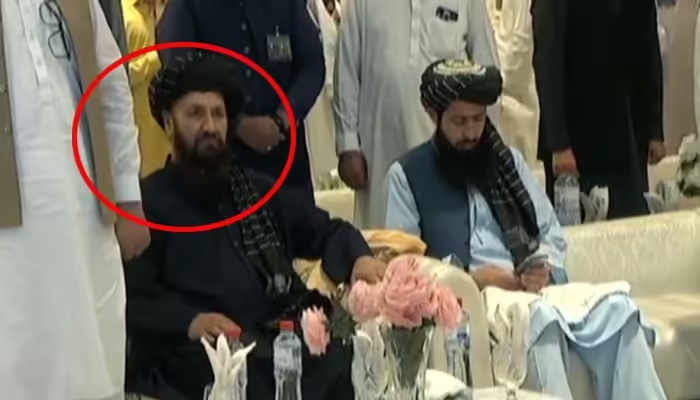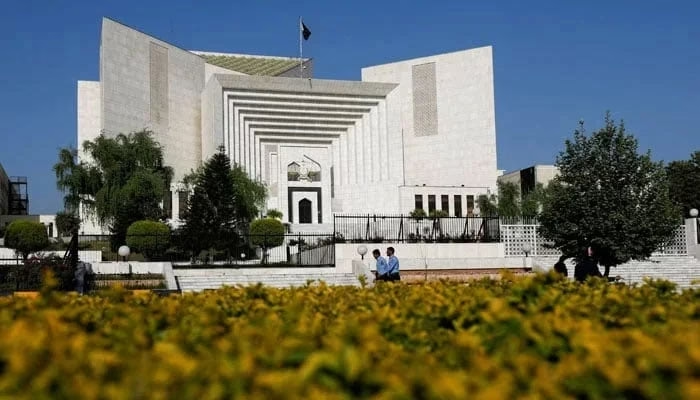In a diplomatic incident that has attracted attention, the Afghan Consul General in Peshawar, Muhibullah Shakir, faced criticism for allegedly violating diplomatic etiquette by not standing in honor of the Pakistani national anthem during a public event. The event in question was the Qaumi Rahmat Lal Alamin (peace be upon him) conference, where representatives from various diplomatic circles gathered.
As soon as the national anthem began, all participants stood up in respect. However, the Afghan Consul General and his delegation chose not to stand, raising eyebrows and sparking debate. This act was perceived as a breach of diplomatic protocol, leading to diplomatic friction between the two neighboring countries.
The Afghan Consulate’s Response
Responding to the incident, Shahidullah, spokesperson for the Afghan Consulate in Peshawar, clarified that there was no intention to insult Pakistan or disrespect its national anthem. He explained that the consul general’s decision was linked to a matter of religious sensitivity concerning the use of music in the national anthem. According to Shahidullah, the consul general refrained from standing because of the musical component in the anthem. He added that Afghan authorities have also banned their own national anthem due to similar reasons.
Shahidullah further emphasized that had the Pakistani national anthem been played without music or performed by children, Muhibullah Shakir would have stood out of respect and placed his hand on his chest as a sign of reverence. He reiterated that the incident should not be interpreted as a deliberate show of disrespect towards Pakistan.
Diplomatic Implications
The incident sparked a diplomatic reaction in Pakistan. According to official sources, the Pakistani Foreign Office summoned the Afghan governor to issue a protest letter concerning the actions of the Afghan consul general. Diplomatic etiquette plays a significant role in maintaining peaceful relations between nations, and any perceived slight, particularly during official ceremonies, can escalate tensions.
Pakistan and Afghanistan share a complex and often turbulent relationship, influenced by a range of political, security, and cultural issues. Diplomatic protocols, such as standing in respect to another nation’s national anthem, are essential in fostering mutual respect and cooperation. In this case, the failure to adhere to such a protocol triggered disappointment in certain Pakistani quarters, further straining bilateral ties.
Cultural Sensitivities and Diplomatic Norms
This incident highlights the delicate balance between diplomatic norms and cultural or religious sensitivities. Diplomatic representatives are often required to navigate situations where local traditions, national symbols, and cultural practices differ from those in their home country. While respecting diplomatic norms is important, it is equally crucial to acknowledge and understand the cultural and religious factors that may influence behavior.
In the case of the Afghan consul general, the decision to remain seated during Pakistan’s national anthem stemmed from his country’s stance on the use of music in such anthems. While this reason may not fully justify the breach of diplomatic protocol in the eyes of some, it does shed light on the complexities that can arise in international diplomacy when religious beliefs intersect with official duties.
Public and Political Reactions
The incident has sparked a mix of reactions in Pakistan. While some commentators emphasized the need for strict adherence to diplomatic etiquette, others expressed understanding, noting the cultural and religious differences that may have influenced the consul general’s actions.
The incident also underscores the importance of diplomatic engagement and dialogue in resolving such matters. As tensions simmer, it remains crucial for both nations to address such issues constructively to avoid further escalation. Pakistan and Afghanistan share a long and intertwined history, and ensuring that diplomatic relations are managed with mutual respect is vital for maintaining regional stability.
Moving Forward
The diplomatic fallout from this incident serves as a reminder of the role that symbolic acts play in international relations. Whether it is standing for a national anthem or adhering to local customs, diplomatic representatives must balance their personal, cultural, and religious convictions with the expectations placed upon them in a foreign setting.
As for Pakistan and Afghanistan, this episode will likely serve as a learning experience for both sides. Through dialogue and understanding, both nations can work towards avoiding such incidents in the future, ensuring that diplomatic relations remain cordial and respectful, even in the face of differing cultural practices.
while the Afghan consul general’s actions may have violated diplomatic protocol, the explanation provided by the Afghan consulate sheds light on the broader cultural and religious context that influenced the decision. Moving forward, it is essential for both countries to foster a spirit of mutual respect and understanding to ensure that such incidents do not strain their already fragile relationship further.



